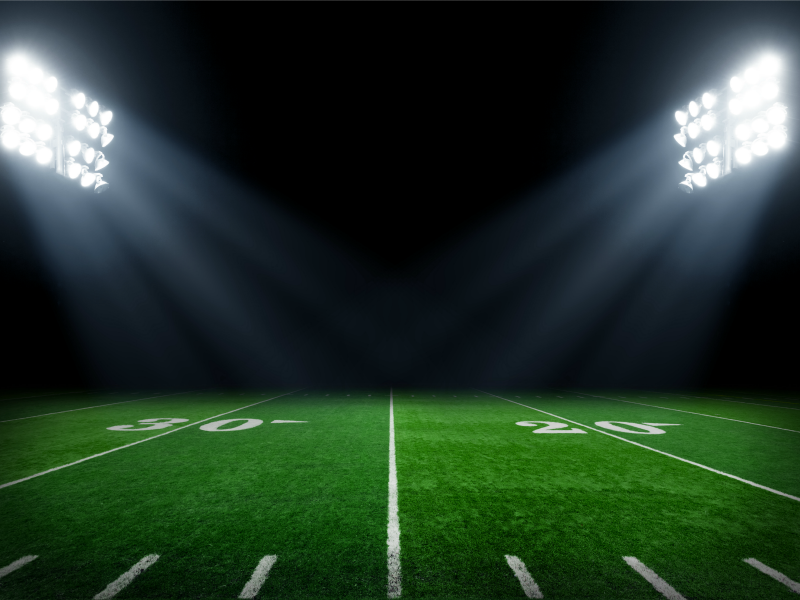Diana Marszalek 02 Oct 2017 // 5:09PM GMT

As unprecedented social activism plays out on American football fields, sports marketing leaders say sponsors are wisely treading lightly before taking stances on the combustible issues surrounding the movement.
“The most important things brands have to do is listen to to what’s being said in the public marketplace and make sure it’s aligned with their core values,” said Joe Favorito, a sports marketing vet who’s handled communications for the New York Knicks and Philadelphia 76ers among others.
“You are dealing with people’s emotions and you have to weigh both sides. This is going to be a long-term process,” he said. “You have not seen one brand saying they are leaving the NFL or the NBA or the WNBA. It’s not in the conversation.”
Favorito’s remarks last week came amidst highly charged discord surrounding the recent groundswell in athletes’ activism, most notably among NFL players -- specifically kneeling during the U.S. national anthem.
The Take a Knee movement started last year when Colin Kaepernick, then a San Francisco 49er, knelt in protest of police brutality. But President Trump, in a Sept. 22 speech, inflamed passions on both sides of the contentious issue, by attacking demonstrators, calling on NFL owners to fire players who don’t stand for the anthem.
The sports world responded in a myriad of ways. The Sunday following Trump’s attack, the Dallas Cowboys, along with owner Jerry Jones, linked arms and took a knee on the field before the anthem was played. Most of the Pittsburgh Steelers, meanwhile, skipped the pre-game ceremony altogether.
Although big-league sports are no stranger to politicking (think icons like Mohammed Ali and Billie Jean King), the recent tumult has divided Americans in unprecedented fashion, pitting not just politicians and sportspeople against each other, but putting fans, veterans and activists among others at odds as well.
Opponents are accusing each other of being racist, and anti-military. The movement has started permeating other sports organizations from NASCAR to the Oakland A’s.
Whether Kaepernick’s original message withstands the cacophony remains to be seen.
“The biggest danger is people speaking without being informed,” Favorito said. “The biggest issue we have is people shouting not listening.”
So it is not surprising that the brands backing the NFL, as well as particular teams and players, so far are playing this one safe and keeping relatively quiet – and likely will continue to as long as they’re able, sports marketers said.
For instance, the majority of sponsors have limited their actions to issuing statements, which isn’t necessarily equivocal to taking a stand. Ford, Under Armour and Anheuser-Busch affirmed their beliefs in players’ rights to express themselves, but also nodded to patriotism and the flag. Nike and Hyundia were more direct in backing players.
Industry watchers say sponsors’ ability to do that so far has been boosted by the apparent lack of acrimony on the issue within the NFL itself, and that there is no obviously egregious act, like a violent crime, in play.
“This has been pretty easy for the sponsors to deal with,” said Levick chairman and CEO Richard Levick. “The show of unity between players and owners (the weekend of Sept. 23) really took any heat off the sponsors.”
The Take a Knee movement is also still in its infancy, making brands wary of taking any drastic action before knowing its potential impact. “You have not seen one brand saying they are leaving the NFL, or the NBA or the WNBA,” Favorito said. “It’s not even in the discussion.”
Yet how long the NFL’s corporate backers will be able to remain at the periphery of the goings-on depends on a range of factors, including whether President Trump continues to inflame controversy surrounding the football league, Levick said.
At the same time, we’re living in an age when consumers simply expect big business to take responsibility for their alliances and the like, said Finsbury VP Jeff Heckelman.
“Amid the rise of social activism within the sports world, it seems that fans and others are increasingly looking for brands to have a voice and to participate in issues in an authentic way – to the point where they might even be at risk by staying on the sidelines,” he said. “As NFL sponsors are brought into this debate, it’s important for them to demonstrate that they are thoughtful and respectful without alienating customers – or employees – who may have particularly strong feels on the issue.”
Levick also noted that while the NFL may be unscathed by this particular controversy, the league is fraught with other challenges that threaten its reputation, from concussions to where it really stands on players Taking a Knee.
“They NFL got a pass, but it is very true that the NFL has still not hired back Colin Kaepernick,” Levick said.
“To those who say keep the politics out of the NFL, they are living in a fantasy.”


































.jpg)





.tmb-135x100.jpg)












